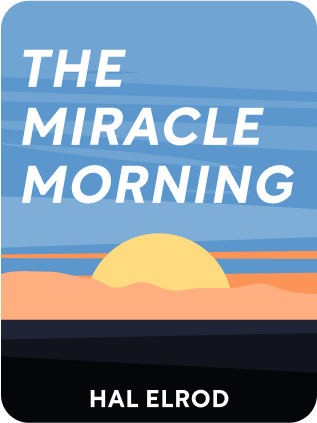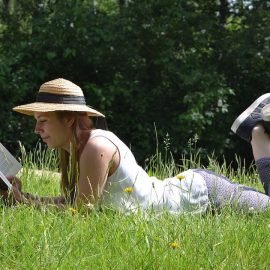

This article is an excerpt from the Shortform book guide to "The Miracle Morning" by Hal Elrod. Shortform has the world's best summaries and analyses of books you should be reading.
Like this article? Sign up for a free trial here .
What are the benefits of keeping a journal? What specifically is a Miracle Morning journal, and how can you get started?
A Miracle Morning journal can bring you clarity, reinforce growth, and establish a mindset of gratitude. The Miracle Morning author Hal Elrod sets out three simple steps to get you started—as well as tips to keep you going.
Read more to learn the why and the how of the Miracle Morning journal.
The Benefits of Journaling
Scribing or writing in a journal allows you to record insights, ideas, successes, lessons, and opportunities for future development.
Benefits include clarifying your thoughts, reinforcing what you’re learning, and setting a direction for the future. But you get even more benefit from reviewing your Miracle Morning journal at regular intervals. For example:
- You gain an appreciation for what you’ve accomplished in a month or a year.
- You feel gratitude for your accomplishments.
- By looking back, you can identify lessons learned and commit to the steps you’ll take to implement those lessons.
Starting Your Miracle Morning Journal
Here are three steps to get started with the Miracle Morning journal routine:
1) Choose a format: You can use a digital or traditional paper format. It’s a matter of personal preference.
2) Get a journal: If you’re going the traditional route, you can use any lined notebook, although some people prefer hardbound volumes that are more durable. There are digital formats and apps you can use on an electronic device, as well as sample pages you can download and print out for traditional use. You can also download the Miracle Morning Journal template here.
3) Decide what to write: You can write about anything—for instance, your goals, family, plans, or commitments. Elrod sometimes takes a structured approach of listing what he’s grateful for, his accomplishments, and areas for improvement plus the steps he’ll take to improve. Other times, he just writes a synopsis of his day in his Miracle Morning journal.
Maintaining the Habit
Many people who keep journals do their writing at night before going to bed, but it’s easy to skip writing when you’re tired. Some people buy pricey bound volumes to write in, hoping that the money expended will motivate them to use the book. They end up with a collection of blank books in which they’ve only written a few words.
However, making Miracle Morning journal writing part of a routine is more successful because the routine provides a consistent time and a structure for writing.
There can be a downside to reviewing your journal, especially if you’re a perfectionist or high achiever: focusing too much on how far you have to go (your potential gap). This can lead to minimizing your accomplishments and beating yourself up for not making enough progress. To avoid this, make a point of being grateful for what you’ve done, then tell yourself you’re doing the best you can in the moment and will continue to do better.
Writing in your journal should remind you that you do many more things right than you do wrong. Always record what you accomplished, what you’re grateful for, what you’re committed to doing better. This should keep things in perspective as well as motivate you.

———End of Preview———
Like what you just read? Read the rest of the world's best book summary and analysis of Hal Elrod's "The Miracle Morning" at Shortform .
Here's what you'll find in our full The Miracle Morning summary :
- How getting up early and following a simple, daily routine can empower anyone to transform any area of their life
- How Elrod's "Life S.A.V.E.R.S." routine can help you feel energized and motivated
- Why hitting the snooze button is comparable to resisting your life






